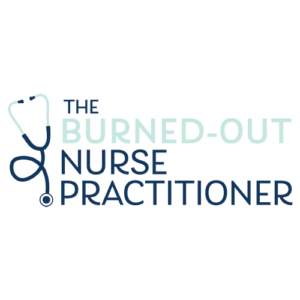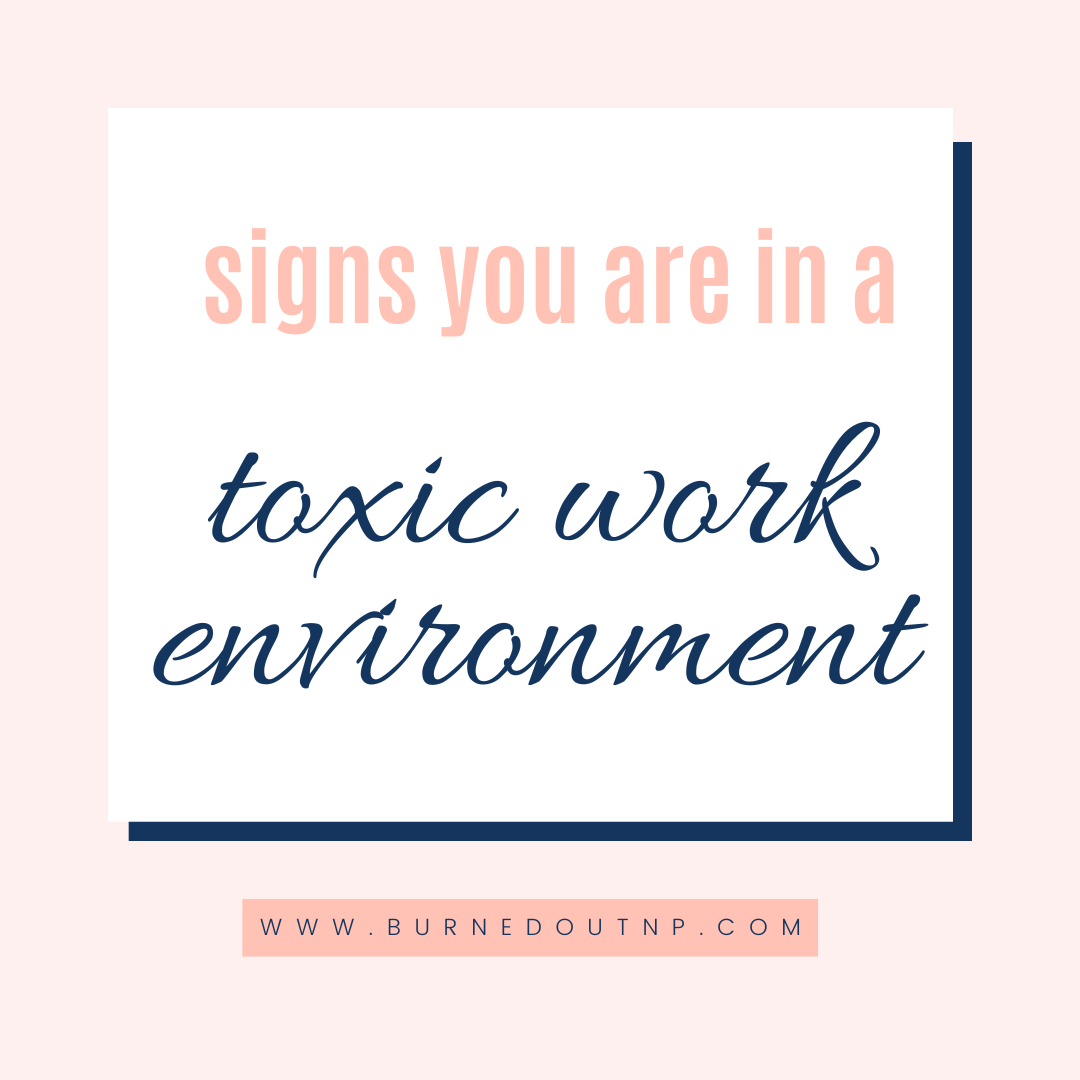Practicing in a toxic work environment is one of the reasons nurse practitioners become burned out. It is not enjoyable to go to work every day and experience a negative environment. Many nurse practitioners dread going to work and have a hard time getting motivated to care for patients. Nurse practitioners need to be aware of the signs of a toxic work environment.
Toxicity and negativity can come from multiple avenues. Maybe NPs experience a lack of support from administration. Maybe APRNs hear degrading comments from nurses. Maybe there is little praise or appreciation of nurse practitioners. There are many reasons why nurse practitioners experience a toxic work environment.
I recently asked my fellow burned-out nurse practitioners their input of red flags indicating a toxic work environment. Many nurse practitioners responded, indicating a significant toxic work environment problem.
Signs of a toxic work environment
Here are some signs and red flags of a toxic work environment.
- Lack of support from leadership or other staff
- Degrading or disrespectful comments or actions
- No willingness to change or see another point of view
- Lack of communication
- Broken promises or staff not following through on something
- Blaming, not taking accountability for actions
- Gossiping about other staff or patients
- Lack of professionalism
- Staff not acknowledging nurse practitioners as competent providers
- Taking on a physician’s workload
- Unfair/unequal treatment of staff
- Lack of appreciation
- Micromanaging
- Passive aggressive behaviors
- Unrealistic expectations such as seeing an unfeasible amount of patients
- Retaliation for speaking up about issues
- Lack of boundaries between staff members
- Lack of boundaries between patients
- No empathy for personal lives/well being
- Lack of work-life balance
- Nurse practitioners feeling anxious about work
- Stress and overwhelm impacting our mental, physical, and emotional health
- Increasing feelings of imposter syndrome
- Lack of confidence and questioning clinical decision making
- Not preventing or addressing nurse practitioner burnout
Do you experience any of these negative issues in your place of work?
Negative impact of a toxic work environment
I strongly encourage nurse practitioners to become aware of the signs of a toxic work environment. These are serious red flags of a toxic work environment that is not healthy for anyone to experience. There are a few reasons nurse practitioners are prone to working in a toxic work environment. For example, healthcare in general is a caring profession. Nurse practitioners constantly put others needs in front of our own. For this reason, some employers, staff, or patients take advantage of NPs. They may not treat the nurse practitioner fairly.
These negative signs of a toxic work environment creates a workplace that is not conducive for nurse practitioners to work. Many NPs dread going to work everyday. The may feel like they cannot safely or adequately care for patients. They start to despise the work and no longer find experience fulfillment working as a nurse practitioner. A toxic work environment can cause nurse practitioner burnout. Many APRNs consider leaving healthcare all together.
How to manage a toxic work environment
I think it is important for nurse practitioners to take a self assessment and become aware of their own work environment. Identify which of these signs of a toxic work environment in healthcare are applicable to your place of employment. What other experiences have you had to add to the list of signs of a toxic work environment?
Nurse practitioners then need to become aware if that negative aspect is a make or break for them. For example, do you get very little positive feedback from your clinic manger? Is this something that really frustrates you? Or is it not a big deal? What if the toxic work environment included a patient safety issue? That the place of employment had such a toxic work environment that the patient’s own safety was at risk. Is this a deal breaker for the nurse practitioner?
The Burned-out Nurse Practitioner wrote another blog article specifically discussing ways to manage or overcome these signs of a toxic work environment.

For time management and charting tips, check out The Nurse Practitioner Charting School– The one stop for all documentation resources created specifically for nurse practitioners. Learn more at www.npchartingschool.com

**Full disclosure, this blog post may include affiliate links. I do receive a commission if any of the affiliate programs/services/supplies are purchased. This is at no extra cost to you but does allow me to continue to provide content as The Burned-out Nurse Practitioner! Thank you!




